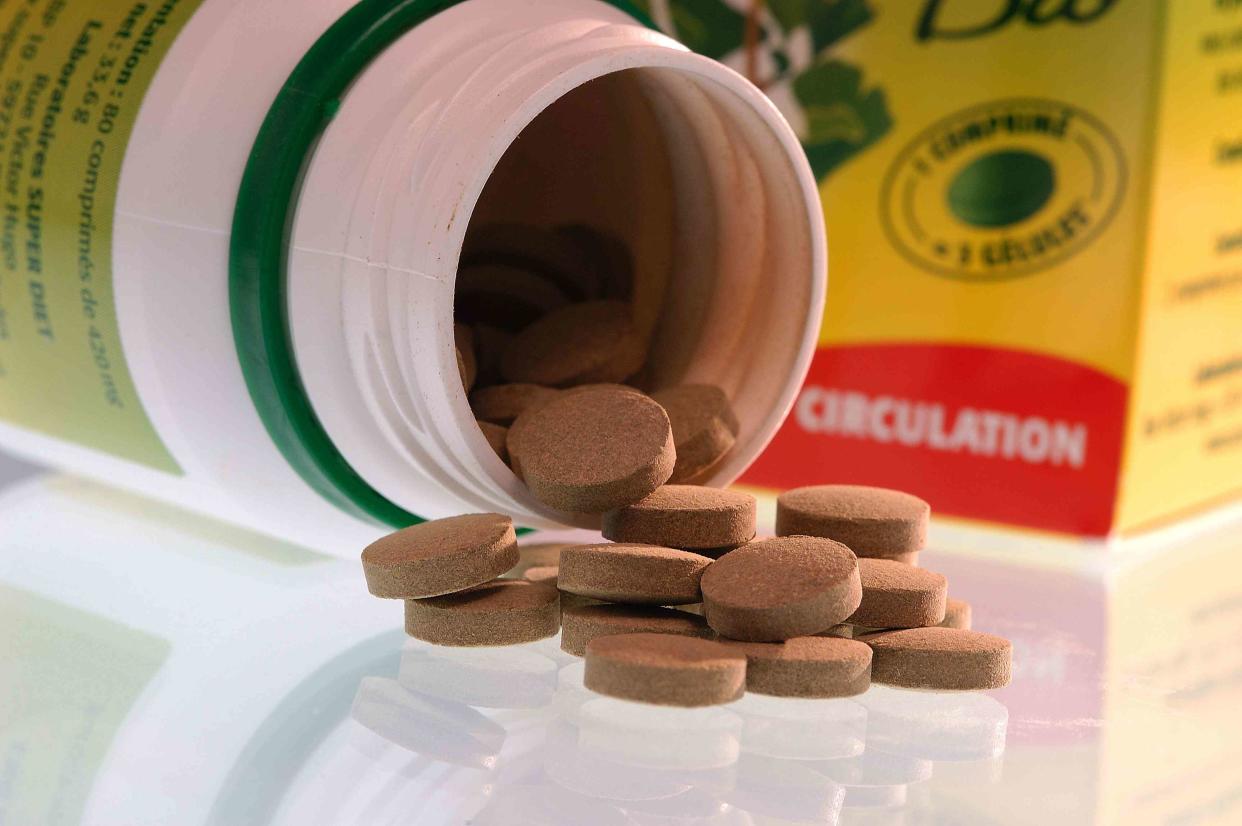Can Ginkgo Biloba Aid in Stroke Recovery?

BSIP / Contributor / Getty Images
Fact checked by Nick Blackmer
Key Takeaways
Ginkgo biloba is linked to improved cognitive ability in acute stroke patients.
A new study on ginkgo biloba used an intravenous version of the supplement rather than the oral version most consumers are familiar with.
Ginkgo biloba is not approved for any medical use in the U.S., although it is available as a supplement.
A study out of China showed that an intravenous (IV) treatment of the active ingredients of ginkgo biloba, a tree-based supplement, produced better cognitive outcomes among stroke patients than placebo. This finding paves the way for a promising new tool to help people recover from a stroke.
The study, which was presented at the American Stroke Association International Stroke Conference earlier this month in Phoenix, involved over 3,000 patients who had experienced an ischemic stroke. Within 48 hours of their stroke, they were treated with either ginkgo diterpene lactone meglumine (GDLM) or a placebo for 14 days.
What Is an Ischemic Stroke?
Most strokes are ischemic strokes. These types of strokes are caused by an obstruction in a blood vessel that supplies blood to the brain.
Researchers used the Montreal Cognitive Assessment scale (MoCA) to measure improved cognitive ability. After both 14 and 90 days, the GDLM group had significantly higher MoCA scores.
The results corroborate what many clinicians already know.
“I did not find the results of the study surprising at all,” Sheryl L. Chow, PharmD, chair of the American Heart Association Clinical Pharmacology Committee, said in a video interview. “There have been previous studies looking at dementia patients that seem to show some very modest benefits. There have also been other studies on acute ischemic stroke patients that have actually shown improvement in outcomes.”
What Is Ginkgo Biloba?
Ginkgo biloba is an herb that comes from the ginkgo tree, an ancient tree native to China. Its ingredients have neuroprotective properties that may help with:
Dementia
Cognitive impairment
Cardiovascular disease
Claudication (low blood flow to the muscles)
Depression
Sexual dysfunction
Tinnitus (ringing in the ears)
Vertigo
Certain eye conditions (glaucoma, macular degeneration)
While physicians in China routinely use ginkgo biloba to treat an array of medical conditions, including stroke, it is not approved in the U.S. for any medical use. However, it is widely available in the U.S. as an oral, extract, or tea supplement.
“Gingko biloba supplements might be suggested for people with certain conditions such as memory problems, poor circulation, or tinnitus,” Katherine Donelan, RD, a clinical dietitian with Stanford Healthcare, told Verywell. “However, you should always bring it up with your doctor before taking it, especially since it can have potential interactions with other medications like insulin, antidepressants, and blood thinners.”
Related: These Are the Supplements You Should Avoid Taking With Medication
How Ginkgo Biloba Can Help with Stroke Recovery
The two active ingredients of ginkgo biloba (terpene lactones and flavone glycosides) act as antioxidants, helping to improve blood circulation. This is key when dealing with a blood clot, which is the cause of an ischemic stroke.
Chow added that ginkgo biloba has both anti-inflammatory and anticoagulant properties.
“Most notable—and very relevant to this particular patient population—are the anti-platelet effects,” she said. “Ginkgo is believed to be a platelet activity factor receptor antagonist, meaning that it prevents the platelets from binding or sticking to each other.”
A study published last year showed that ginkgo biloba extract EGb 761—commercially available as tablets and drops—can help treat cognitive decline in people who have recently had a stroke, likely by enhancing blood circulation to organs and decreasing blood viscosity (thickness and stickiness). This specific form of ginkgo biloba resulted in even better MoCA scores than the extract used in the new study.
Still, before any form of ginkgo biloba can be added as a stroke treatment in the U.S., more studies on its effectiveness and safety are needed, especially in an American population. Independent clinical trials will also be required since the latest study was sponsored and funded by Jiangsu Kangyuan Pharmaceutical Co., the manufacturer of the IV compound tested.
Chow said she would also like to see other studies compare the effectiveness of ginkgo biloba against current stroke standard-of-care options, which include fibrinolytics (medications that dissolve blood clots) and thrombectomy (manual extraction of the clot).
“It would be important to look at other more concrete endpoints, such as mortality or recurrent stroke, just like the other standard of care therapies,” she said.
Related: Coping With Stroke
Are There Any Risks of Taking Ginkgo Biloba?
While it’s easy to find ginko biloba tablets and capsules, Chow warns that the formulation given via IV in the latest study is completely different than what you find on drugstore shelves. If you or a loved one is recovering from a stroke, purchasing ginkgo biloba supplements is not necessarily going to help with recovery.
While ginkgo biloba supplements are usually harmless in moderate amounts, they can pose health risks and negative side effects such as:
Headache
Dizziness
Upset stomach
Seizures
Heart palpitations
Allergic reaction
Bleeding
People who have epilepsy or bleeding disorders should avoid taking ginkgo biloba because of the risk of seizures and blood thinning.
What This Means For You
While this study is promising, don’t purchase ginkgo biloba supplements because of it just yet. The formulation of the medication used in the study is different than what is found in drugstore supplements. Always check with your doctor before taking over-the-counter supplements.
Read the original article on Verywell Health.

